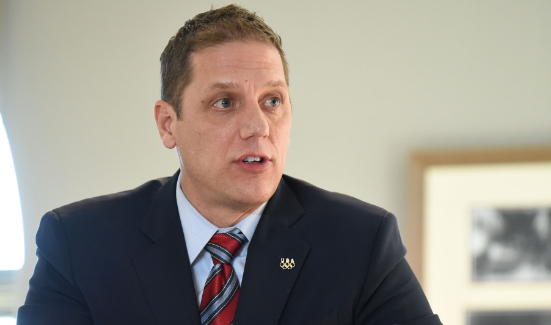
Marty Nothstein: How Sports Can Help Students Excel in Their Education
Engaging in sports offers numerous benefits beyond physical fitness. It can also play a significant role in helping students excel in their academic pursuits. Marty Nothstein, a legendary cyclist, shares insights into how sports can empower students to thrive in their education.
1. Dealing with Failure: Failure is an inevitable part of life, and students often encounter setbacks in their academic journey. Sports provide a valuable platform for students to learn how to cope with failure and bounce back stronger. Whether it’s a missed shot, a lost match, or a setback in training, athletes experience failure firsthand and develop resilience. This resilience translates to academics, enabling students to learn from their mistakes, persevere through challenges, and maintain a positive mindset even when faced with academic setbacks.
2. Teamwork and Communication: Sports teach students the importance of teamwork and effective communication. Being part of a team instills a sense of collective responsibility and fosters skills such as collaboration, trust, and effective communication. In a team environment, students learn to rely on and support their teammates, understand the strengths of each member, and work together towards a common goal. These skills directly translate to the academic setting, where group projects, discussions, and presentations require effective teamwork and communication to achieve success.
3. Problem Solving and Decision Making: Sports often present students with situations that demand quick decision-making and problem-solving skills. Whether it’s making split-second decisions during a game or finding strategic solutions to overcome challenges, athletes develop the ability to think critically and make sound judgments under pressure. These skills carry over to the academic realm, equipping students with the ability to analyze complex problems, think creatively, and make informed decisions in various academic scenarios.
4. Healthy Habits: Participating in sports promotes a holistic approach to health and well-being. Through physical activity and regular exercise, students develop healthy habits that positively impact their overall well-being. Physical fitness has been linked to improved cognitive function, concentration, and academic performance. Additionally, sports encourage students to adopt healthy eating habits and prioritize self-care, which in turn can enhance their energy levels, mental clarity, and overall academic performance.
In conclusion, sports provide a powerful platform for students to excel in their education. Marty Nothstein By instilling resilience, fostering teamwork and communication, promoting problem-solving skills, and encouraging healthy habits, sports equip students with valuable life skills that extend far beyond the playing field. Engaging in sports can have a transformative effect on students’ academic journeys, empowering them to achieve success both in and out of the classroom.